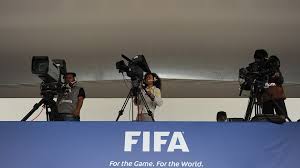May 30 – Vietnam’s Women’s World Cup debut will be broadcast by National Assembly Television, following the acquisition of rights in the country by VMG Media, in the South Asian country. However, with just over 50 days to go until the tournament’s kick-off, FIFA is still to secure broadcast deals in key European markets.
VMG Media has acquired free-to-air, pay-TV and OTT rights and National Assembly TV will broadcast Vietnam’s three group-stage matches on Channel 7, with a delay. National Assembly TV will also air tournament highlights.
General director of National Assembly TV Lê Quang Minh said: “It is an important event for National Assembly TV to win the World Cup broadcast rights. It is a historic milestone of national football in particular and Vietnam sport in general.”
Vietnam are one of the debutants at this summer’s expanded 32-team Women’s World Cup, co-hosted by Australia and New Zealand. They have been handed a difficult draw, facing world champions USA, European powerhouse Netherlands and Portugal in Group E. They will kick off their campaign against the Americans on July 22 at Eden Park in Auckland.
Luong Minh Tuan, general director at VMG Media, said: “It is difficult to bring the World Cup matches to Vietnam. But it is nothing compared to the miracle mission that the Golden Star women have made. It is the main reason that we decided to buy the World Cup broadcasting rights so that Vietnamese supporters can watch and encourage the team nationwide.”
With just over 50 days to go until New Zealand gets the tournament underway against Norway, FIFA still has no broadcast deal in place in France, Italy, Germany, Spain and the UK.
At the recent FIFA Congress in Kigali, where FIFA announced that they would raise the prize money for the tournament to $152 million, FIFA boss Gianni Infantino also lamented the lack of substantial broadcast interest in Europe’s major markets. Infantino claimed that “broadcasters and sponsors have to do more”.
He explained that “FIFA is receiving between ten and hundred times less from public broadcasters for the women’s World Cup than the men’s World Cup. Do you think that is normal? At the same, these public broadcasters who are paid by the taxpayers’ money, they criticize FIFA, a bit less the others, for not guaranteeing equal pay to men and women.”
Contact the writer of this story at moc.l1745647376labto1745647376ofdlr1745647376owedi1745647376sni@i1745647376tnuk.1745647376ardni1745647376mas1745647376

